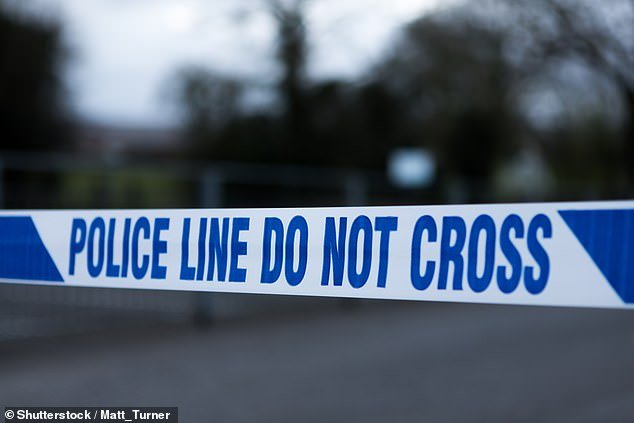The cost of crime to the economy has soared since 2015, rising to £95billion in the last year.
Increases in cases of violence, sexual offences and robbery have come at an alarming price to the country.
This is up from £59billion in 2015, according to an analysis by Labour.
The cost of crime to the economy has soared since 2015, rising to £95billion in the last year
The figures, which update a 2018 Government report on the issue, are based on factors such as the cost of measures to prevent crimes, like burglar alarms, and the price of its consequences. They also looked at the economic toll on police and the justice system.
According to the estimates, crimes against individuals rose to £72.5billion last year – up from £50.1billion in 2015/16. And the cost of crimes against businesses has more than doubled, from £8.7billion to £22.8billion, driven by a rise in theft and robbery.
Labour’s policing spokesman Sarah Jones said the figures show crime’s ‘devastating’ impact both on individuals and the economy.
A Government spokesman said that although they had provided more officers and funding in the past year, they acknowledged ‘there is more to do’.
The figures show the cost of murders to the public purse has reached £2.6billion, up from £1.8billion six years ago.
The cost of violent offences has climbed from £28.9billion from £20.6billion in that time. Rape cost £8.6billion, up from £4.8billion.
The cost of robberies doubled, from £2.2billion in 2015 to £4.2billion last year.
Commercial crime has increased by £14billion in the past six years, with robberies increasing fourfold, and the number of thefts against businesses doubling.
The costs are not just to the public purse in police time, the costs of jailing people and convicting them, and putting them in prison, but also in how much is spent preventing crime.
This can include burglar alarms, security guards, CCTV equipment and car alarms as well as expensive insurance premiums.
They also include the consequences of crime for people, such as time off work due to emotional and physical distress and the costs of replacing property.
Ms Jones said: ‘Crime has a devastating impact on people and their communities, but these figures show the huge impact it has on our economy as well.
‘Rising theft and robbery in particular are incredibly traumatic for victims and cause real financial damage.’
Last year, a report revealed the financial cost of London’s violence epidemic, which reached more than £3billion in 2019.
The capital recorded an 11-year high of 149 killings, with the financial impact of this estimated at £420.5 million.
This included emergency service response, police investigations, criminal justice and lost economic output caused by a death.
Using the same analysis, the 160,000 stabbings, assaults and violent crimes cost £1.7 billion.
More than 32,000 robberies led to losses of £391 million, 8,300 rapes £335 million, and 12,200 other sexual offences £86 million, according to figures compiled by the Metropolitan Police, City of London Police and Office for National Statistics data.
A Government spokesman said: ‘The Government are working flat out to cut crime, bolstering the police with 20,000 new officers and providing them with more funding and powers to relentlessly pursue criminals and protect victims.
‘The amount of funding available to the policing system for 2020/21 increased by more than £1.1 billion and we are providing an additional £20 million to crack down on neighbourhood crimes through the safer streets fund.
‘Our approach is working, but we acknowledge there is more to do which is why we are bringing forward the Police, Crime, Sentencing and Courts Bill so the law-abiding majority can be confident they are safe.’
